Go back

Building on Ground Zero
Episode number: 1
Overview: Can lessons learned from the Twin Towers' collapse make new buildings safer?
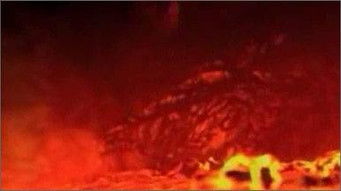
Mystery of the Megavolcano
Episode number: 2
Overview: Researchers unearth clues about the greatest Volcanic eruption of the past 100000 years.

The Deadliest Plane Crash
Episode number: 3
Overview: On March 27, 1977, on the island of Tenerife, two fully loaded 747 jumbo jets collided on a fog-blanketed runway, claiming the lives of 583 people in what is still the deadliest crash in aviation history. Now, almost 30 years later, near misses on the ground are the leading cause of aviation accidents, raising the question of what can be done to improve runway safety. Featuring moving interviews with the few survivors of the disaster and with top accident investigators, this program examines the fateful confluence of events that led to the Tenerife tragedy and its continuing relevance for air travel today.
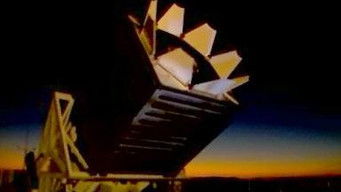
Monster of the Milky Way
Episode number: 4
Overview: Astronomers are closing in on the proof they've sought for years that one of the most destructive objects in the universe—a supermassive black hole—lurks at the center of our own galaxy. Could it flare up and consume our entire galactic neighborhood? Join NOVA on a mind-bending investigation into one of the most bizarre corners of cosmological science: black hole research. From event horizon to singularity, the elusive secrets of supermassive black holes are revealed through stunning computer-generated imagery, including an extraordinary simulation of what it might look like to fall into the belly of such an all-devouring beast.

Wings of Madness
Episode number: 5
Overview: The flamboyant rise and tragic death of pioneering aviator Alberto-Santos Dumont.

Family That Walks on All Fours
Episode number: 6
Overview: Experts explore the mysterious story of five siblings living in a remote Turkish village.

Underwater Dream Machine
Episode number: 7
Overview: Follow one man's dream to engeneer a submarine with panaramic views.

Forgotten Genius
Episode number: 8
Overview: The grandson of Alabama slaves, Percy Julian met with every possible barrier in a deeply segregated America. He was a man of genius, devotion, and determination. As a black man he was also an outsider, fighting to make a place for himself in a profession and country divided by bigotry—a man who would eventually find freedom in the laboratory. By the time of his death, Julian had risen to the highest levels of scientific and personal achievement, overcoming countless obstacles to become a world-class scientist, a self-made millionaire, and a civil-rights pioneer.
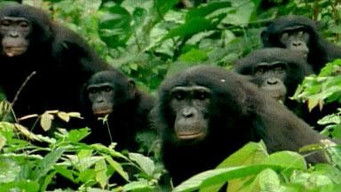
The Last Great Ape
Episode number: 9
Overview: Scientists return to the jungles of Congo to further explore the peaceful lives of bonobos.
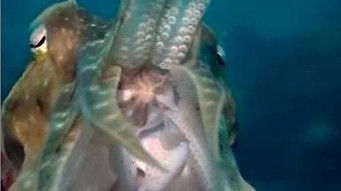
Kings of Camouflage
Episode number: 10
Overview: Join NOVA on a voyage beneath the waves, where you'll discover a bizarre, alien-like creature like no other. It's an animal with eight sucker-covered arms growing out of its head, three hearts pumping its blue-green blood, and a doughnut-shaped brain. It has the ability to change its color and shape to blend in with seaweed and rocks, and it has a knack for switching on electrifying light shows that dazzle its prey. Perhaps most surprising of all, this animal is quite intelligent, with a highly complex brain. In this program, underwater cameras capture the extraordinary powers of the cuttlefish.

First Flower
Episode number: 11
Overview: In the remote mountains of China, scientist come closer to understanding the origins of flowers.
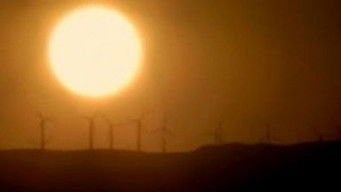
Saved by the Sun
Episode number: 12
Overview: As the Earth heats up at a dangerous rate and fossil fuels become scarcer, ordinary citizens and businesses are bypassing the federal government to lead the way in exploring a clean, renewable source of power: the sun. In this report, NOVA shines a light on how and why people across America and the world are "going solar," using radiant energy of the sun to power homes, businesses, and even entire communities. But can everyday people really make a difference by using solar power? And can solar technologies, with their high cost and logistical challenges, truly play a bigger role in powering the future of humanity? The grand hopes, latest innovations, roiling controversies, and practical realities of solar power all come to the fore in this program.

Pocahontas Revealed
Episode number: 13
Overview: The recent archeological discovery of the Native American Powhatan village of Werowocomoco, sheds new light on the Jamestown story of Pocahontas.
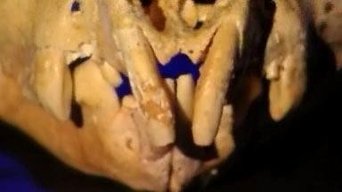
Bone Diggers
Episode number: 14
Overview: NOVA follows a group of paleontologists to a cave in southwestern Australia where the fossils of a meat-eating marsupial lion, and other extinct giant animals, have recently been discovered.
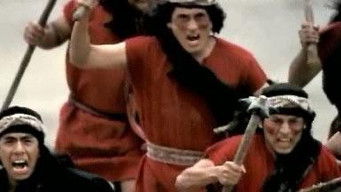
The Great Inca Rebellion
Episode number: 15
Overview: Through a mix of crime-lab science, archeology, and history, this NOVA/National Geographic special presents new evidence that is changing what we know about the final days of the once-mighty Inca Empire. This probing story of archeological discovery begins in a cemetery crammed with skeletons that offer tantalizing clues about a fierce 16th-century battle between warriors of the collapsing Inca Empire and Spanish invaders. Now, the long-accepted account of a swift Spanish conquest of the Inca—achieved with guns, steel, and horses—is being replaced by a more complete story based on surprising new evidence, including what may be the first gunshot wound in the Americas.